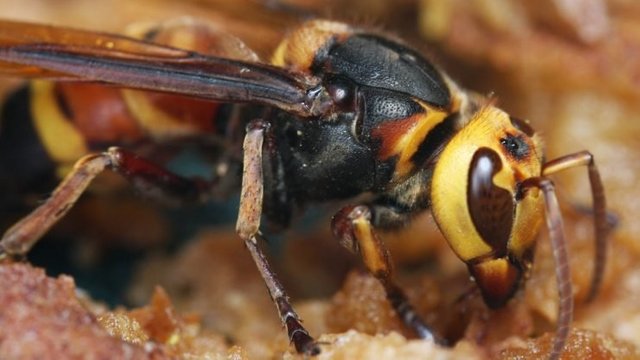People Are Killing Vulnerable Bee Species Over “Murder Hornet” Fears

You may have recently heard something about “murder hornets”, an invasive species to the United States that has been making headlines this month. The real name for this insect is the “Asian giant hornet” but in typical fashion, it has been given a more threatening name in the headlines to grab everyone’s attention.
To be fair, these Asian giant hornets are no joke and are actually capable of killing a human being, and they are also a major threat to honeybee populations, which are already dangerously low. In fact, this is how the invasive species was first discovered in Washington state.
According to the New York Times, an entire hive of bees was destroyed back in November and the bees were found decapitated. A short time after, two Asian giant hornets were found just a few miles north near Blaine, near the U.S.-Canadian border. After that incident, scientists and residents were on the lookout for the species, and then two were spotted last week in Washington State, sparking panic after the sightings were reported.
So far, these hornets have only been seen in Washington, but people all over the country are concerned. For the very small and specific area in the pacific northwest where these hornets have been seen, experts have advised local residents to set up traps and destroy any nests before they can grow. However, this can be dangerous because there is no way to only target these hornets without also targeting other insects, so the traps that people are setting up could end up accidentally killing other vulnerable insects.
Doug Yanega, senior museum scientist for the Department of Entomology at UC Riverside told the LA Times that these insects aren’t as threatening as they appear to be, and reminded reporters that the “murder hornets” have not created an armageddon in Asia yet, and they have been there hundreds of years, but they do represent a danger to other insects as an invasive species.
The national panic has led to the needless slaughter of native wasps and bees, beneficial insects whose populations are already threatened, said Yanega.
“Millions and millions of innocent native insects are going to die as a result of this.” Yanega said.
Yanega explained that these hornets are a force to be reckoned with, but they should not be a concern for people across the entire country.
“I don’t want to downplay this — they are logistically dangerous insects. But having people in Tennessee worry about this is just ridiculous. The only people who should be bothering experts with concerns about wasp IDs are living in the northwest quadrant of Washington (state). And really, right now, nobody else in the country should even be thinking about this stuff,” he said.
“Folks in China, Korea and Japan have lived side by side with these hornets for hundreds of years, and it has not caused the collapse of human society there. My colleagues in Japan, China and Korea are just rolling their eyes in disbelief at what kind of snowflakes we are.” He added.
Unfortunately, humans have a strange way of making bad situations worse, especially when we try to interfere with nature.